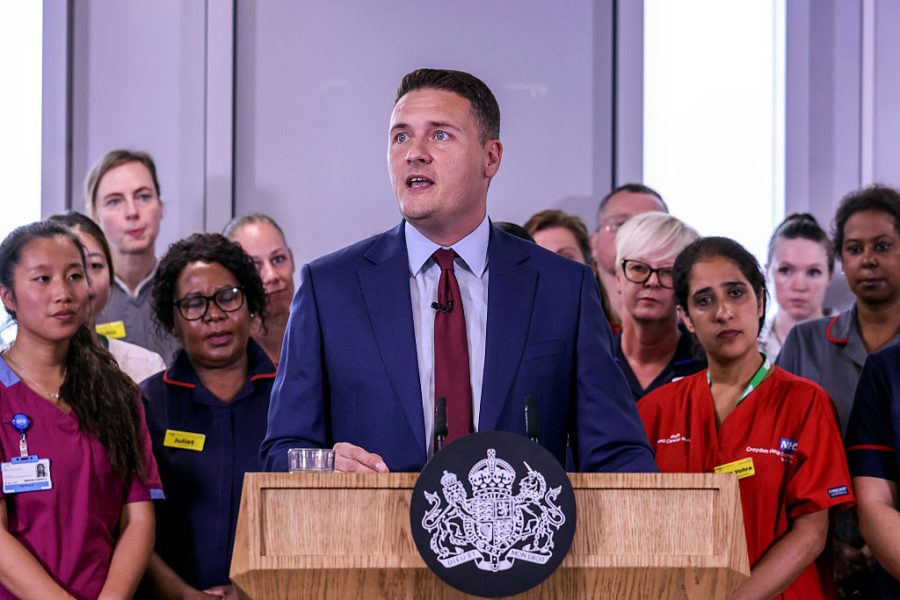Just what was Wes Streeting expecting when, shortly after becoming health secretary last July, he offered junior doctors (who now like to be called ‘resident’ doctors to disguise the fact they are still in training) a thumping 22 per cent pay rise with no strings attached, no requirement to accept improved working practices to lift lamentably low productivity? According to Streeting at the time, it was the act of grown-up government, which would result in more mature relations between government and health unions in future.
The only way to deal with the BMA’s pay claim is to call its bluff
Some hope. Now, the BMA is back, this time demanding a 29 per cent pay rise – and calling five days’ of strikes later this month if it doesn’t achieve it. Streeting’s latest suggestion – that doctors should be allowed to trade in some of their generous pension rights for higher pay during their careers – has a lot of merit.
Doctors’ pensions, along with many in the public sector, are absurdly generous compared with those available in the private sector. Many doctors would be better foregoing pension payments in 40 years’ time for more money now, when they, for example, might want to buy a home. As Streeting notes, part of the NHS’s problem is that large numbers of consultants are retiring early because their pension pots are worth so much.
But the damage has already been done: the message which the unions took away from last year’s pay award is that this government is a pushover and that threatening strikes is well worthwhile. They will continue to come back for more until they meet with rather more resistance than Streeting or other cabinet ministers are able to provide.
The result of feebleness in the face of the unions is public spending which is rising so fast as to make further tax rises inevitable. Many Labour MPs seem to think that the burden can be placed entirely on the ‘broadest shoulders’. The trouble is that doctors are among the owners of those shoulders, with many at the upper end falling within the top 2 per cent of earners. They want higher pay, but they don’t personally want higher taxes to pay the rising public sector pay bill. With remarkable cheek, consultants last year wanted a pay rise partly to compensate them for higher taxes. Sorry, but that isn’t going to wash.
Nor is the threat that doctors will emigrate en masse unless they are paid more. Actually, UK doctors are relatively well paid by international comparison. An OECD report from 2023, using data from 2021 – well before last year’s fat pay rise, showed that salaried doctors in England earned 3.3 times the average wage. A handful of countries – Germany, the Netherlands and Israel – matched that. Canada is an outlier for higher pay, with doctors earning 4.4 times average salaries. But in most countries salaried doctors earn less than in England.
The only doctors who tend to earn more are those who are self-employed – and who bear the financial risk of that status. Would England’s doctors appreciate a rise in pay in return for a deal when they were only employed when there was work for them, they lost pension contributions and paid holidays? Somehow, I think not.
The only way to deal with the BMA’s pay claim is to call its bluff and tell its members: go on, emigrate if you want to. A year ago Streeting had the opportunity to do that. But he blew it and, as a result, will spend the rest of his time in office as a pawn of the unions.








Comments